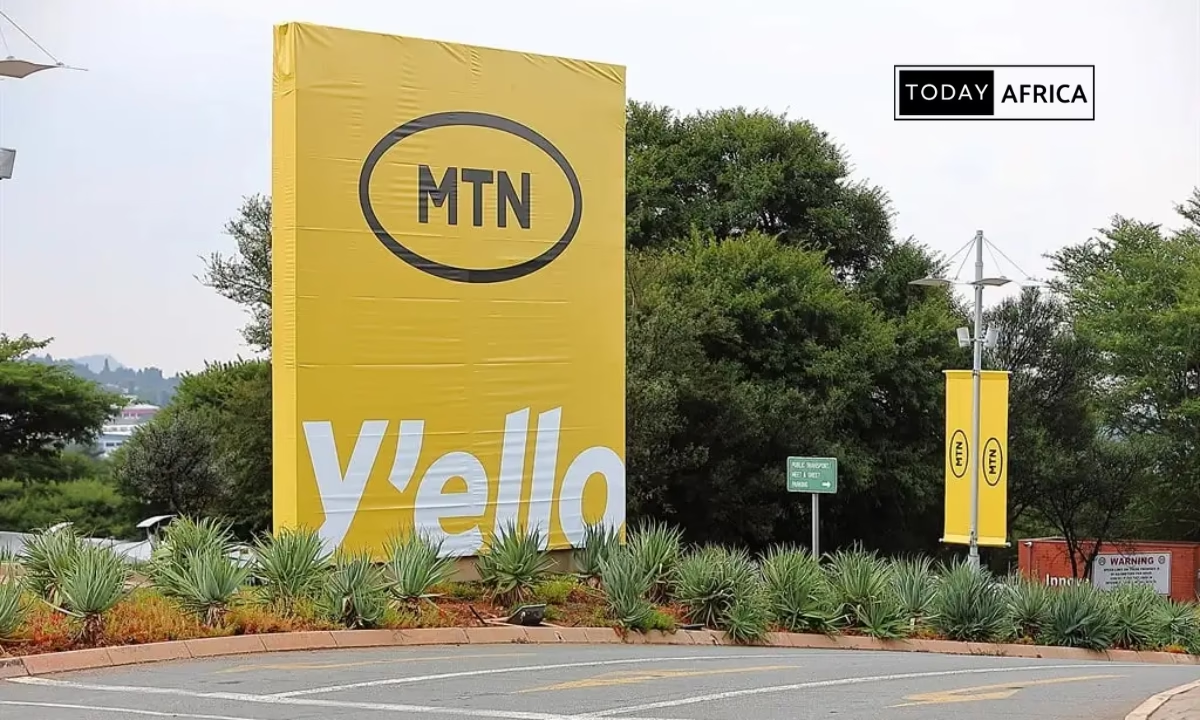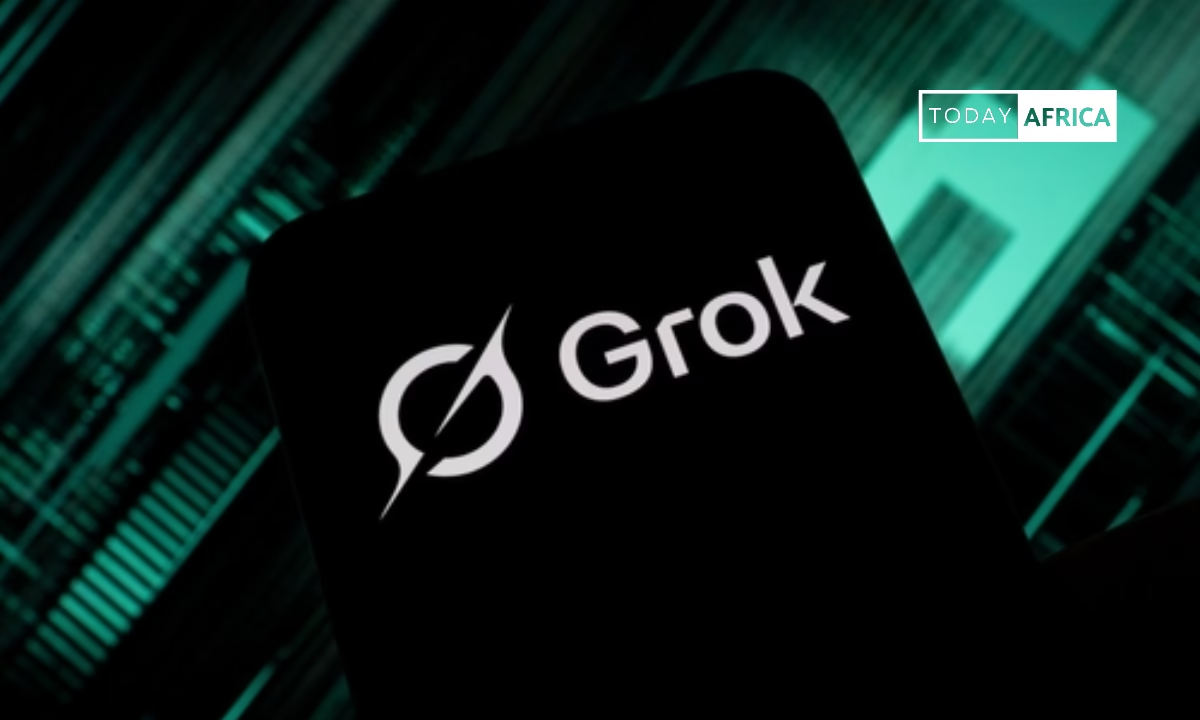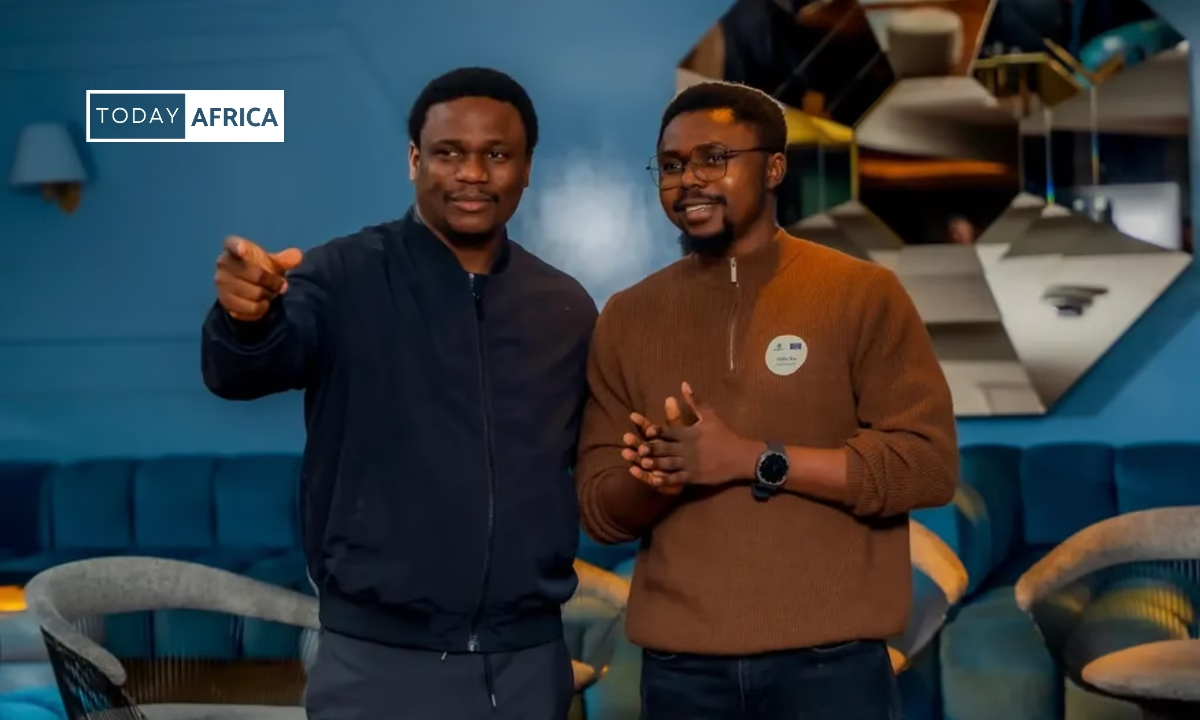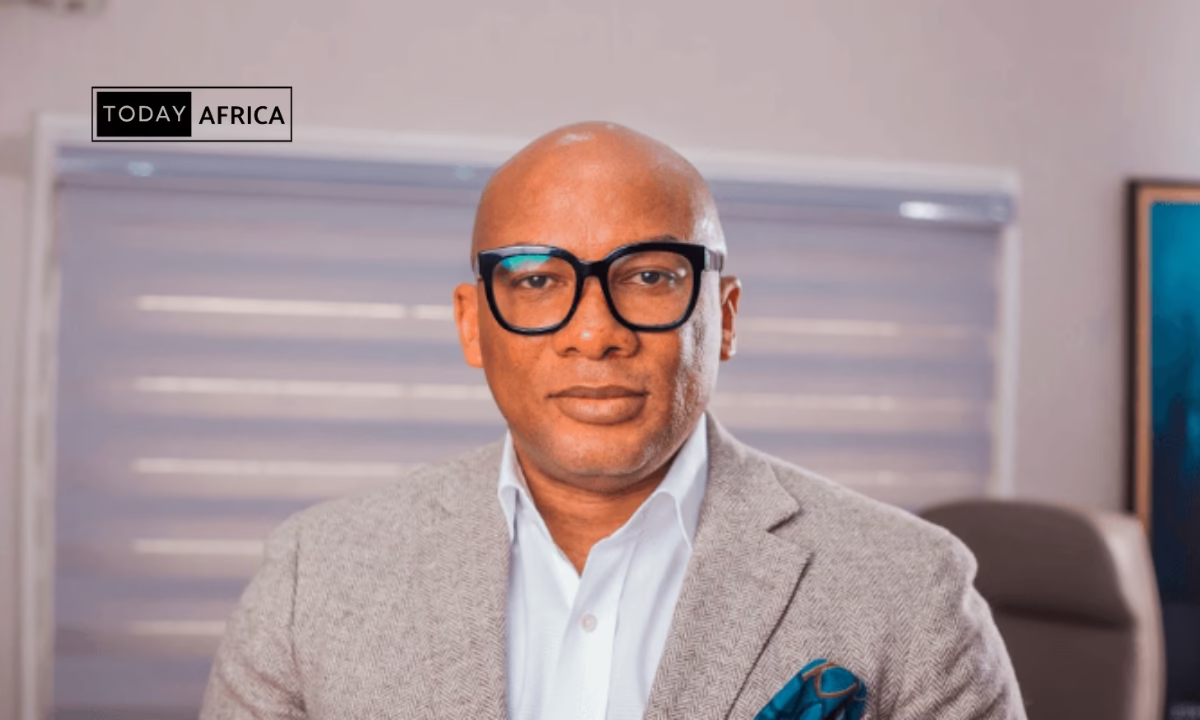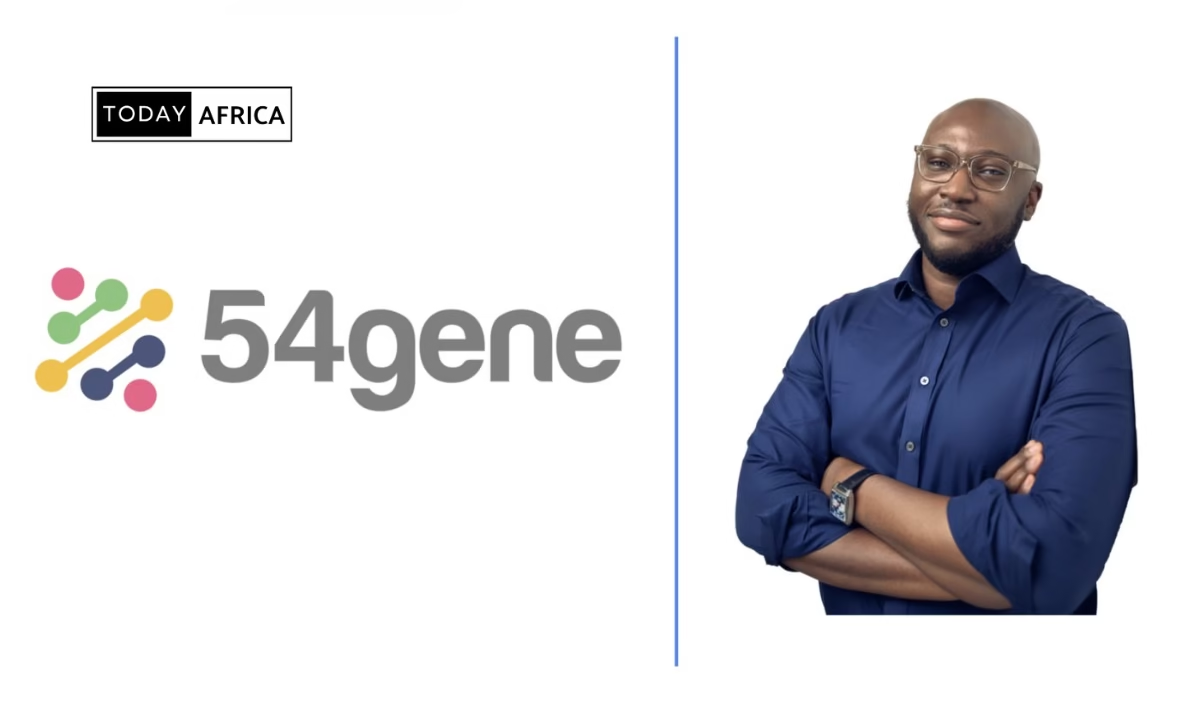Far from the world’s major tech hubs, in southern Tunisia, an unlikely experiment in artificial intelligence began to take shape. It did not start in a modern lab or a well-funded innovation center.
It began at home, with a few used computers, slow internet, and a belief that talent shouldn’t be limited by geography. The idea was simple but bold: if cutting-edge AI could be built anywhere, why not here?
From this unlikely beginning, a small startup pushed its way into global conversations usually reserved for well-funded Western labs.
Its technical breakthroughs spanned everything from biology to industrial systems, attracting attention from international companies that rarely look toward North Africa for innovation.
What started as an idea in Africa became a global force in AI, challenging assumptions about where frontier technology can come from and who gets to build it.
This inside InstaDeep’s journey traces the founding story, their funding journey, strategic moves, societal impact, challenges, and lessons learned.
Disclaimer: Based on publicly available information as of November 2025 from reliable sources such as InstaDeep website, Rest of World, Techcrunch, Reuters, Endeavor, Sifted, and iAfrica.
Founding story of InstaDeep
In 2014, a young Tunisian mathematician returned home to the remote town of Tataouine with an audacious plan: build a world-class AI company from scratch in North Africa.
Karim Beguir, a Franco-Tunisian engineer trained in mathematics, and Zohra Slim, a self-taught polyglot software engineer, co-founded InstaDeep in Beguir’s family home.
Beguir had studied applied mathematics in France and New York, worked in finance in London, and was inspired by his doctor father’s mission-driven career. Slim had led software development teams in India and spoke multiple languages.
A mutual friend introduced the two when Karim needed a web developer for a youth coding initiative in Tataouine. They hit it off immediately. Starting with “two laptops, $2,000, and a lot of enthusiasm,” they bootstrapped what would become Africa’s first global AI startup.
Early experiments and the first breakthrough
Their first projects were humble: building and selling simple applications and websites to local clients. But their ambitions were big. Within a year, they developed a prototype computer vision tool to scan luxury goods (watches, handbags) and automatically verify authenticity.
“We built a visual AI system that would allow people to scan luxury objects…to determine whether or not they were originals. A year later, we sold this to a client in London,” Beguir told Rest of World in a chat.
That early success abroad taught them two lessons: the local market in Tunisia was not ready for cutting-edge AI (legacy firms were baffled and unwilling to pay), but global clients were intrigued. “At that time…everyone was in complete disbelief that we were talking about doing AI in Tunisia. There was almost no startup ecosystem in the country,” Beguir said.
“Building an AI startup seemed like a tall order”. The team managed only a few thousand dollars in Tunisian sales, so they shifted focus to international customers.

A mission bigger than a startup
Even as university classes and offices were still full of students coding from dorm rooms, Beguir and Slim set out to break a psychological barrier.
They believed African innovators deserved the same world-class platform as peers in Silicon Valley or London. “We want to grow an African AI success story,” Beguir told investors, vowing to democratize machine learning in Africa.
“As a Tunisian startup, it was important to prove that good things don’t only happen elsewhere. InstaDeep is already proving this is not the case,” he said, embracing their offbeat origin story.
This defiant worldview that global excellence needs no geographical monopoly would guide their strategy.
Related Story: Inside VIEBEG Medical’s Journey: Using Data to Transform Africa’s Medicals
Global validation and early funding
InstaDeep’s journey from Tataouine to a global AI lab happened in leaps. By 2017, after only a few years of iteration, the team scored a signal breakthrough: Beguir was invited to meet Mark Zuckerberg at Facebook’s Silicon Valley office, a validation that a “cool project” was taking shape.
They also impressed Google: in late 2017, Beguir became a certified Google Developer Expert in Machine Learning. Buoyed by international credibility, Beguir set a five-year horizon: if they still hadn’t succeeded by 2019, he’d reconsider.
Instead, after demonstrating real traction, they closed a seed funding round and formally incorporated in London.
Early investors like AfricInvest and Endeavor Catalyst caught the vision that a tiny Tunisian AI startup could “transform from an African leader to a global player,” given its deep-tech focus and novel approach.
Technical vision and breakthrough research
Key to InstaDeep’s early momentum was technical vision. The founders moved quickly from proof-of-concept to building real solutions for complex decision-making problems. They applied recent advances in reinforcement learning to industry.
“When we were building systems that optimized logistics in ride-hailing and trucking,” Beguir explained, “we found a way to apply DeepMind’s gaming concept to real-world problems.”
In fact, the team became “among the first in the world” to adapt DeepMind’s AI breakthroughs to industrial optimization tasks.
Along the way, they authored academic papers and contributed code; notably, they became one of the first Africa-based companies to publish at NeurIPS (the premier machine learning conference) in 2018.
Those publications caught the attention of global labs, leading to collaboration offers from DeepMind, Google and MIT.
Becoming a global AI company
By 2018, InstaDeep already spanned continents. Beguir moved the headquarters to London in 2016 (recognizing that Tunisian regulations made large funding rounds difficult), but he kept one founder based in Tunis and opened offices in Paris and elsewhere.
As Beguir quipped, he’d often tell people he came from “Tataouine” (Tunisia’s desert town, famously the inspiration for Star Wars’ “Tatooine”). This origin story became a powerful narrative: a scrappy startup born in a desert city was now solving global AI problems.
Before long, they opened new offices across Africa, Europe and beyond, including Lagos, Cape Town, Dubai, and even hubs in the US, building a truly international team with a “born-in-Tunisia, built-for-the-world” identity.
Throughout, Beguir and Slim emphasized impact. They trained dozens of local students in machine learning through meetups and indabas, and from early on carved out the mission that new African innovations (from pandemic surveillance to logistics optimization) should be built and owned here.
“If you’re ambitious, go to Europe or the US, but if you’re mega ambitious, stay home and build,” Beguir told a reporter, capturing their belief that Africa could lead on frontier AI.
It was a belief that would soon reverberate as InstaDeep turned heads on the global stage.
Funding history – investors, rounds, and purpose
InstaDeep’s growth was underpinned by steady, strategic financing after its lean early years. From 2014 through 2018, the founders “bootstrapped” the business, reinvesting every client dollar into talent and technology.
The two co-founders started with virtually nothing (“two laptops, $2,000”) and “didn’t receive outside capital until 2018.
Initial revenue came from consulting engagements and small licensing deals, which funded the burgeoning AI team. This frugal, iterative phase allowed InstaDeep to mature its flagship decision‑making AI platform without dilution.
Series A
In mid-2019, the company landed its first major institutional round. In May 2019, InstaDeep raised roughly $7 – 8 million in a Series A led by AfricInvest (a Pan-African private equity fund) with participation from Endeavor Catalyst and a syndicate of AI-focused angels.
The round reportedly valued the startup at around $30 million. AfricInvest’s senior partner Khaled Ben Jilani was enthusiastic about the bet, noting that InstaDeep was “quite different” from typical deals; it was a deeptech company rather than a single-sector app.
In his view, Africa had few peers to InstaDeep’s profile, but the founding team had “the vision and strategy” to become a global player.
InstaDeep said at the time it would use the Series A capital to hire engineering talent and expand its AI platform (then called DeepChain for biotech and DeepPack for combinatorial optimization), as well as opening more offices in Europe and Africa.
This funding also underwrote entry into startup programs like Google’s Launchpad Accelerator and the Nvidia Inception partnership, helping secure world-class compute credits and mentorship.

Strategic partnerships
InstaDeep had formed close partnerships with deep-tech leaders that resembled venture alliances. It joined NVIDIA’s Inception program in 2017 and later became a certified NVIDIA Service Delivery Partner, gaining access to GPUs and cloud credits.
It collaborated on research with Google Brain and DeepMind; in fact, some of its earliest AI clients were Google and DeepMind themselves.
In biotech, InstaDeep signed an AI innovation partnership with Germany’s BioNTech in late 2020 to use its DeepChain protein-design engine for developing new mRNA sequences.
BioNTech, which also invested in InstaDeep’s Series B, later described this joint lab as a key part of its vision to apply AI to next-generation immunotherapiess.
These alliances brought both cash and credibility: as one investor noted, early sceptics had doubted a Tunisian startup would “collaborate with the likes of DeepMind and Google,” but watching InstaDeep’s “original AI research” led DeepMind and Google to sign on as partners and even co-investors.
Read Also: Inside Twiga Foods’ Journey: From Rural Farms to Cities
Series B
With a track record of success and growing sales across industries, InstaDeep’s ambitions and bank account, scaled up dramatically.
In January 2022, the company closed a $100 million Series B round, making it one of Africa’s largest venture financings to date.
The round was led by Singapore-based Alpha Intelligence Capital and Taiwan’s CDIB Capital, and included new backers: BioNTech (Germany’s biotech giant), Google’s Gradient Ventures, Chimera (an AI/robotics VC), Deutsche Bahn Digital Ventures (railway tech), Abu Dhabi’s G42 VC, and VC firms Synergie and Paladin.
This dollar infusion supercharged InstaDeep’s expansion. According to TechCrunch, Beguir said the funds would “accelerate the launch of several new AI products” across biotech, logistics, transportation and electronics, and allow the company to build out its high-performance computing infrastructure.
It also funded a major hiring spree: by early 2022, the team had grown to roughly 170 AI engineers and researchers (many based in Africa), and InstaDeep began recruiting for dozens more roles in the US and Europe.
The new investors, especially industrial and technology giants, also became strategic partners, embedding InstaDeep’s AI into projects from vaccine design to railway scheduling.
Acquisition announcement
In January 2023, German biotech firm BioNTech announced it would acquire InstaDeep for up to £562 million (roughly $680 million).
The deal closed in mid-2023, confirmed at a valuation of about €500–700M. InstaDeep said the acquisition made it a “fully owned subsidiary” of BioNTech, adding roughly 290 of its AI and data experts to BioNTech’s staff.
For the founders, this was a payoff: BioNTech CEO Ugur Şahin explained that integrating InstaDeep’s AI capabilities would enable “AI-driven drug discovery… from target discovery to manufacturing”.
In practical terms, the $680M exit (with an upfront payment plus earnout) turned InstaDeep into Africa’s largest startup acquisition ever.
It also injected substantial resources into the team’s mission: BioNTech immediately boosted InstaDeep’s R&D in areas like computational biology and reinforced its global expansion, while promising InstaDeep would continue serving existing clients in logistics, energy and beyond.
InstaDeep funding timeline
| Year/stage | Amount raised/deal value | Investors/partners | Purpose |
|---|---|---|---|
| 2014–2018 (Bootstrapped) | $0 external capital | None — self-funded | Founders reinvested all revenue; started with “two laptops, $2,000.” Funded early AI team through consulting and small licensing deals. Built core decision-making AI platform without dilution. |
| May 2019 — Series A | $7–8 million | Lead: AfricInvest; Others: Endeavor Catalyst, AI-focused angels | Hire engineering talent; expand DeepChain (biotech) & DeepPack (optimization); open more offices in Europe & Africa; join Google Launchpad & NVIDIA Inception. Valuation approx. $30M. |
| 2020–2021 (Strategic Partnerships) | Non-equity partnership benefits | NVIDIA (Inception program, certified service partner); Google Brain; DeepMind; BioNTech (AI innovation partnership) | Access to GPUs, compute credits, cloud resources; AI research collaborations; joint protein-design lab with BioNTech; major credibility boost with global deep-tech leaders. |
| Jan 2022 — Series B | $100 million | Lead: Alpha Intelligence Capital, CDIB Capital; Others: BioNTech, Google Gradient Ventures, Chimera, Deutsche Bahn Digital Ventures, G42 VC, Synergie, Paladin | Launch new AI products; expand into biotech, logistics, transportation, electronics; scale HPC infrastructure; major hiring spree (team grew to ~170+ researchers); deepen industrial partnerships. |
| Jan 2023 — Acquisition Announcement | Up to £562M ($680M) | BioNTech (full acquisition) | InstaDeep becomes fully owned subsidiary; adds ~290 AI/data experts to BioNTech; strengthens AI-driven drug discovery pipeline; Africa’s largest startup acquisition. Deal closed mid-2023. |
Strategies that fueled InstaDeep’s growth
1. Technical excellence at the core
InstaDeep’s rise was no accident of timing; it was the product of a carefully crafted playbook combining technical mastery, strategic alliances and global branding. At its heart was a commitment to technical excellence.
From day one, the founders targeted the most challenging AI problems, reinforcement learning and combinatorial optimization, rather than narrow business apps.
The company built on the latest deep learning frameworks (TensorFlow, PyTorch) and invested heavily in its own research team. For example, it developed algorithms to optimize port container scheduling, transportation logistics and even electronic chip design.
When Nvidia partnered with InstaDeep in 2019, it marveled that the Tunis-London startup was able to deploy “advanced machine learning… such as deep learning and reinforcement learning” at scale for corporate clients, something few other companies had done in practice.
In other words, InstaDeep turned bleeding-edge research into production systems.
2. Culture of research
InstaDeep began contributing original papers to top conferences and open-source tools (by 2023, it even had a record 13 papers at NeurIPS). These academic accomplishments caught the eye of tech giants.
After its NeurIPS debut in 2018, InstaDeep started co-publishing with DeepMind and Google Brain teams, forging informal research partnerships.
A Forbes-style list noted its work spanned “machine learning for biology, decision-making AI, and accelerated engineering design,” underlining its breadth.
For recruiting, such a track record made it easier to attract PhDs and postdocs, even if InstaDeep couldn’t match Big Tech salaries.
Karim Beguir, in an interview, said that despite being based in the Maghreb, “the expertise to do [AI] at scale” existed at InstaDeep; what was missing was mostly funding and compute power.

3. Global collaborations
Parallel to its technical depth, InstaDeep pursued global collaborations from the outset. It plugged into every ecosystem that mattered: it joined Google’s Launchpad program, the Deep Learning Indaba network, and Facebook Developer Circles.
By 2017, the company had joined NVIDIA’s Inception program (and later became an official NVIDIA Service Delivery Partner), ensuring access to cutting-edge GPUs and industry mentoring.
Crucially, it also forged partnerships with potential customers turned co-creators. In transportation, it worked with Intel’s Mobileye and Germany’s Deutsche Bahn on scheduling and route optimization.
In biotech, the multi-year collaboration with BioNTech (begun in 2019) was particularly notable: BioNTech applied InstaDeep’s DeepChain protein-design platform to engineer novel mRNA sequences.
When Covid‑19 hit, this partnership paid off: InstaDeep built a generative AI system that flagged high-risk Covid variants before health agencies did. “All the variants we identified as potentially dangerous were later confirmed by the WHO,” Beguir recounted.
This high-stakes win further cemented InstaDeep’s reputation for “deep tech that could impact many sectors”, and gave it leverage when negotiating future deals.
Winning global credibility also meant playing on the world’s stage. InstaDeep routinely sent teams to international AI conferences, competitions and summits.
In 2021, it won or placed highly in several reinforcement learning challenges and shared its research in workshops. (By late 2023, it boasted publications in everything from combinatorial optimization to graph neural networks.)
The founders themselves became spokespersons for African AI: Beguir was recognized in Time magazine’s 2024 “100 Impact” list for his work building InstaDeep, and he advised governments on AI strategy.
Every award or press mention reinforced InstaDeep’s narrative as “African AI excellence.”
4. Distributed global team model
Early on, InstaDeep hired wherever talent lived: co-founders themselves split time between Tunis and London, and each new engineer was free to work in Paris, Lagos, Cape Town or the cloud.
By 2023, the company had roughly 240 people spread across nine cities on five continents. This multilingual, multicultural workforce became a selling point.
“We have offices in Tunis, Lagos, Kigali and Cape Town,” Beguir noted, emphasizing that their African base wasn’t a liability but a strength.
He argued that Africa’s vibrant AI community (epitomized by annual gatherings like the Deep Learning Indaba) and its still-emerging market needs give startups like InstaDeep two advantages: a ready pool of keen talent and space to innovate unburdened by legacy incumbents.
Related Story: Inside Wave’s Journey: Francophone Africa’s First Unicorn
5. Brand story
InstaDeep was “born in Tunisia, built for the world.” The media tagline “Tunisian-born AI startup” became commonplace in coverage.
Beguir himself would contrast his roots with the Silicon Valley stereotype: he publicly challenged the notion that one must leave Africa to succeed, advising other founders that real ambition means building at home.
This story resonated with global investors and customers alike; as AfricInvest observed, InstaDeep was “deeptech” (rare in Africa) but operating at global standards.
The company made a point of highlighting its African offices in press material, and even fit it into its corporate mission: “Empowering young talent in Africa is about creating a closer feedback loop,” Beguir said, “and ensuring that some of the economic value that’s going to be unleashed… is also captured to some extent at home”.
6. Cutting-edge tech with a bold Africa-rooted identity
InstaDeep’s concerted focus on cutting-edge tech, coupled with a bold Africa-rooted identity, proved to be a winning formula. It attracted top-tier partners (Nvidia, Google, Amazon, Apple) that would not normally court African startups.
It carved out niches where competition was less intense: whereas most startups were chasing chatbots or fintech, InstaDeep went after logistics optimization and computational biology, fields where its novel AI models gave clients a competitive edge.
And it backed this up with performance and surveys of corporate customers found InstaDeep repeatedly delivered workload optimizations that legacy systems could not.
By positioning themselves as “the African answer to DeepMind,” the founders managed to elevate InstaDeep from underdog status to peer of the world’s leading AI labs, all while remaining headquartered in Tunis and recruiting local talent worldwide.
Competition in the global AI and deeptech ecosystem
InstaDeep does not operate in a vacuum. On one hand, it is part of a growing African deeptech scene; startups like South Africa’s DataProphet (optimizing manufacturing lines) and Aerobotics (drone-based crop monitoring) share its spirit, as do innovation hubs in Nigeria, Kenya and elsewhere nurturing AI research.
But InstaDeep’s founders always envisioned competing on the global stage. That means playing alongside and against the giants.
In the enterprise AI space, companies like Palantir, C3.ai and IBM Watson are incumbents; in biotech AI, startups such as Recursion Pharmaceuticals and Insitro (both U.S.-based) are chasing similar goals in drug discovery.
DeepMind and OpenAI set the standard for what AI research can achieve. And of course, the cloud titans such as Google, Amazon, and Microsoft field huge AI teams and platforms that could eat InstaDeep’s lunch if they chose.
What sets InstaDeep apart from others
What sets InstaDeep apart is its origin story and focus. A Silicon Valley CEO or Cambridge lab wouldn’t highlight a Tunisian founding city or women-led engineering team, but InstaDeep wears those badges proudly.
This has proven to be a differentiator. AfricInvest’s Ben Jilani noted that few African startups were tackling “specific technology that could impact many sectors,” which made InstaDeep “quite different” from the usual. In his words, in Africa, such deeptech companies “are quite rare,” and that rarity itself became a signal of potential.
By contrast with data consultancy outfits or narrow-app startups, InstaDeep’s research depth allows it to pitch itself as comparable to a research lab spinout, yet also market its products to enterprise customers.
The technical track record also plays a role. Unlike more consumer-facing AI firms, InstaDeep has amassed several peer-reviewed breakthroughs in optimization and protein modeling, enough to earn it a spot on CB Insights’ global AI 100 list twice.
This research cachet earns trust when competing for big contracts. For example, a defense or healthcare client might be skeptical of an outsider from Tunisia, but learning that InstaDeep co-authored papers with Google Research or had Intel’s backing in the Nvidia Inception Program can allay those doubts.
Meanwhile, rivals built on more generic machine learning tools often lack InstaDeep’s domain expertise in sequential decision-making or the ruggedness needed for mission-critical systems.
Read Also: Inside Sendy’s Journey: The Startup that Tried to Rewrite African Logistics
Impact on society and the African tech ecosystem
1. Employs hundreds of people
InstaDeep’s story is not just about one company’s success; it has rippled across Tunisia and the continent.
Today, the startup employs several hundred people (around 400 by some accounts) across multiple continents. A significant share is in Africa, in Tunis, Lagos and Cape Town, helping to create a new cohort of high-skilled AI engineers.
While global figures fluctuate, reports indicate InstaDeep had about 240 staff by early 2023, and by 2024, it had more than 400, roughly half of whom were African hires.
These hires come from local universities, which have been inspired to launch AI courses and labs, partially drawn by InstaDeep’s example.
2. Talent development
The founders have invested in talent development directly. They ran training programs and supported events like the Deep Learning Indaba and local AI conferences.
Beguir even helped launch “Project Tatooine,” a public-private initiative aiming to train 10,000 Tunisian youths in AI skills over a few years. Internally, InstaDeep hires PhDs from Tunisian, Nigerian and Kenyan universities and sends them to conferences worldwide.
It also boasts a workforce that is far more gender-diverse than typical tech startups; for instance, Slim has noted that over half of Tunisian researchers are women, and the company’s leadership celebrates this diversity.
In effect, InstaDeep has become a talent magnet, keeping North African diaspora experts engaged and providing career paths for local researchers.
3. Tunisia’s main container port
One early success was at the Port of Rades (Tunisia’s main container port), where InstaDeep’s routing AI reportedly cut turnaround times by up to 20%, saving millions of dollars in delays (a number cited in local media).
In Africa’s emerging smart cities, their AI systems optimize taxi fleets and delivery trucks, improving efficiency and reducing emissions.
Notably, the partnership with Rwanda’s technology agency resulted in an AI model that predicts desert locust swarms, a climate-vulnerable issue, giving farmers early warning.
Though these projects are often confidential, the company says its logistics optimizations alone have saved clients tens of millions annually.

4. Healthcare
In healthcare and science, the impact is even more far-reaching. Working with BioNTech (and researchers at Oxford and MIT), InstaDeep’s DeepChain platform has accelerated vaccine and drug design.
During the COVID‑19 pandemic they developed an early-warning AI for new variants. Impressively, their system flagged over 90% of the WHO’s eventual “variants of concern” in advance.
This isn’t just PR: it showed that African-founded AI could influence global health policy.
Beyond pandemics, InstaDeep’s algorithms now assist in designing personalized cancer vaccines (as part of BioNTech’s AI lab) and modeling protein structures for tropical diseases.
The firm has published open-source tools in genomic AI, enabling other scientists worldwide to build on their advances. InstaDeep has injected African innovation into frontiers of biology and medicine, fields where previously the African contribution was minimal.
5. Creation of high-quality jobs
Economically, the company has generated high-quality jobs in Tunisia and beyond. These are not call-center roles but AI research positions and software engineering jobs, often paying global-competitive wages.
InstaDeep’s presence has also helped incubate a service economy around AI: local startups offering data labeling, cloud services, and even co-working spaces have sprung up to support similar ventures.
Furthermore, the success has attracted investor attention: since the BioNTech deal, international VCs and tech giants have announced AI centers in Africa (Google opened a TensorFlow lab in Ghana, Microsoft has AI hubs in several countries).
Perhaps the most symbolic impact is cultural. Young African developers now see a real-world example of a homegrown AI juggernaut.
InstaDeep’s story is frequently cited in African tech media as proof that “African startups can innovate on the highest levels.”
It has inspired dozens of new AI-focused startups in Tunisia, Nigeria, Kenya and South Africa, not all at InstaDeep’s scale, but buoyed by the belief that frontier tech is not off-limits.
Some estimates put nearly 50 new AI startups in Tunisia alone as calling InstaDeep a motivator.
Tunisian officials have even touted InstaDeep as a national success story, using it to justify increased funding for AI scholarships and digital infrastructure.
6. Placed Africa on the AI map
In global terms, this venture has placed Africa firmly on the AI map. As TechCrunch observed, the BioNTech acquisition “has placed the Tunisian tech ecosystem and, more broadly, Africa’s AI industry on the map”.
InstaDeep’s co-founder Beguir was honored in Time’s “100 Impact” list for showing “frontier AI can emerge from the Maghreb”. These narratives matter: they shift perceptions of Africa from passive users of technology to active innovators.
By the time InstaDeep joined BioNTech, Tunisian AI researchers had published dozens of papers and multiple patents (many owned jointly by InstaDeep and partners).
With 290 new specialized staff, the acquisition effectively pumped nearly €500M into the continent’s high‑tech labor market.
Related Story: Inside PiggyVest’s Journey: How an Idea Changed How Nigerians Save
Challenges InstaDeep faced
The road to InstaDeep’s success was strewn with obstacles, many rooted in the very context of building a high-tech company in Africa.
1. Infrastructure and funding scarcity
Africa simply lacked the computing power and venture capital that Silicon Valley startups take for granted.
Beguir often points out that Europe and Africa need “a mountain of computing power” (GPUs) to train AI models, but the financial backing to build that infrastructure has lagged.
At launch, Tunis had no commercial cloud data centers, so InstaDeep engineers resorted to renting servers in Europe and using donated GPUs. This meant slower experimentation and higher costs per simulation.
The founders say that even today African AI researchers are reliant on Western cloud subsidies, and that a single push to build local data centers would unleash far more innovation.
2. Bureaucracy and regulation
As InstaDeep grew, its international orientation ran into Tunisian startup laws and red tape. By 2022, Karim Beguir acknowledged that Tunisian legal structures would have made a $100M funding round impossible.
He candidly explained that “due to how Tunisian law operates for startups, I don’t think we would have been able to raise that amount locally,” prompting InstaDeep to reincorporate in the UK early on.
Similarly, partnering with major EU and US firms required compliance with complex data and medical regulations.
For instance, collaborating on vaccine and genomic projects involved navigating EU clinical trial protocols and patient data rules, a daunting process for a team based halfway around the world.
These regulatory burdens slowed down some product launches and demanded legal expertise that startups usually cannot afford.
3. Building and retaining talent
Although Tunisia produces roughly 15,000 engineering graduates a year (with a surprising gender balance, about 55% of researchers are women), many skilled AI PhDs were lured to North America and Europe.
InstaDeep had to offer global exposure and competitive packages to keep them.
This meant setting up a London HQ (to tap into European venture circles and skilling) and a Paris office (where 150 AI engineers now work). Even so, the company notes that rivals with Bay Area budgets can sometimes poach star researchers.
An internal report on growth challenges bluntly noted that “retaining talent is difficult due to competitive offers from Silicon Valley”.
The team countered by emphasizing mission-driven work and equity incentives, but this talent war remains an ongoing battle, especially as InstaDeep expands into biotech, where PhDs are in high demand.
4. Credibility and market access
When Beguir and Slim first knocked on local firms or foreign clients, they often heard skepticism. “Everyone was in complete disbelief that we were doing AI in Tunisia,” Beguir said.
International companies would question a startup from a “statistically unknown” AI market. And even many African corporations and governments didn’t yet have AI budgets.
Initial pitches often yielded polite nods and empty promises. Beguir even noted that until InstaDeep published novel research, investors and partners “doubted our goal to collaborate with DeepMind and Google”.
Overcoming this lack of trust required time and trailblazing wins. A turning point was when DeepMind actually engaged them – that reference wiped away a lot of doubt.
5. Operational headaches of scaling
Coordinating teams across continents meant frequent travel, 24/7 development cycles, and complex project management.
InstaDeep had to adapt to multiple corporate cultures simultaneously: juggling German biotech requirements with Nigerian pipeline projects and Nigerian corporate clients (for example, optimizing Dangote’s refinery logistics) meant mastering different business norms.
Financially, setting up legal entities in Dubai, London and elsewhere added expense. Data security requirements varied by country, so the company built federated systems to comply locally.
Each new office had to be carefully seeded with management that could enforce InstaDeep’s quality standards; lapses in research rigor would have risked diluting the brand they’d worked so hard to polish.
6. Global competition for resources
Even as InstaDeep proved itself, tech giants further accelerated their own AI hiring.
In Africa’s case, this meant that many of the best math and CS graduates are now snapped up by Google’s new African AI lab or Microsoft’s R&D centers.
InstaDeep competes not only on salary but on mission, pitching itself as a way to “bring AI back to Africa” rather than just join a Western tech firm.
On the customer side, once InstaDeep began to make inroads with corporations, some clients were courted by larger consultants who sought to either copy or absorb InstaDeep’s technology.
Staying ahead of these moves required InstaDeep to continually innovate and protect its intellectual property. In fields like biotech AI, timeline and precision are unforgiving: an error in a vaccine prediction could destroy trust.
The founders had to rapidly build compliance and testing procedures usually seen only in big pharma, a heavy burden for a startup.
Read Also: Inside Flutterwave’s Journey: From Bright Idea to an African Unicorn
Lessons from inside InstaDeep’s journey
What explains InstaDeep’s meteoric ascent when so many African DeepTech startups stall? The answer is a combination of technical rigor, disciplined execution, and global vision.
InstaDeep never compromised on deep research
Instead of chasing quick wins, the founders invested their Series A and B rounds into in-depth innovation: reinforcement learning algorithms, graph neural networks for proteins, and custom GPUs. They essentially built a mini-DeepMind for enterprise optimization.
This technical moat meant their solutions were not easily replicated by competitors or consultants. They sold fundamentally new capabilities (e.g. robotics scheduling, vaccine design) that incumbents lacked.
InstaDeep excelled at productizing its research
Many academic spinouts struggle to turn code into customer solutions. But Beguir, with his business acumen, pushed the team to deliver working pipelines for clients in logistics, energy and healthcare.
The focus was always on concrete ROI: if AI didn’t measurably cut costs or improve throughput, it didn’t get deployed.
This discipline won early projects with Unilever for drug discovery, with Orange for network planning, and with the French railway SNCF. By tying research to real enterprise payoffs, InstaDeep steadily proved its value to skeptical corporate buyers.
InstaDeep thought globally from day one
The founders deliberately pitched London and Paris as their home base early on, while still maintaining strong African ties. This dual strategy opened doors to global capital and clients.
They showed that being based in Tunisia was not a limitation but a differentiator, an underdog story that attracted media interest and local support.
On the flip side, they never became a “local champion” only; global investors like Google Ventures and BioNTech saw them as one of their own. By the time they made their first large sales, the world already viewed them as a credible international AI company.
Crucially, they built smart partnerships rather than scaling up solo too fast. Rather than trying to do everything internally, InstaDeep allied with deep-pocketed tech and research organizations.
This included collaborating on published research with DeepMind and Google, joining NVIDIA’s partner network, and co-creating with BioNTech. These relationships provided not only revenue and technical help but also an implicit stamp of approval.
When African founders ask, “Who would trust a startup from here?”, InstaDeep’s answer became: all of these names did. This ecosystem-of-support approach allowed InstaDeep to focus on core AI rather than building its own cloud or chemistry labs from scratch.
What African entrepreneurs learn from InstaDeep
- One big lesson is to think beyond local markets. Building products that can compete globally, even from Africa, is key. InstaDeep’s founders often say they were “local to Tunisia, but global in ambition.” They built solutions for global problems (like pandemic detection, which affects every country) rather than only local ones.
- Another lesson is to invest in research and talent. While it’s tempting to chase application-level startups, InstaDeep’s experience shows that a commitment to frontier science can pay off. This doesn’t mean ignoring business – rather, it means marrying strong R&D with an eye on market needs.
- Their success also highlights the value of leveraging geography as an advantage: Europe-Africa ties, diaspora networks and global African summits were tools for InstaDeep. African founders can embrace this “in‑between” position as an asset rather than let it be a handicap.
InstaDeep’s journey has also shifted perceptions and created new opportunities for African tech. The multi-million-dollar acquisition sent a clear signal that high-value exits are possible from the continent’s soil.
Following the deal, global VCs have shown more interest in North African startups, and even governments have sat up. For instance, Tunisia announced plans to invest in digital tech parks, citing InstaDeep’s case.
In Morocco and Kenya, entrepreneurial communities reference InstaDeep when pitching AI ventures to international investors. The excitement it generated has boosted confidence across the ecosystem.
Conclusion
InstaDeep rewrote what Africans can aspire to in DeepTech. A local editor quipped that just five years ago, it would’ve been “science fiction” to see a Tunisian AI lab valued at nearly $700M.
Today it’s reality. As Beguir likes to say, building on the continent with world-class standards “is possible”. Their story suggests a new playbook: start with hard problems, build deep expertise, go global, and use Africa’s unique perspective as fuel.
If InstaDeep’s rise demonstrates anything, it’s that the frontier of AI no longer belongs exclusively to Silicon Valley. Africans are now in that race – and with the right strategy and talent, they can win it.
In the end, InstaDeep’s story is a powerful reminder that innovation knows no borders. From a Tunisian city to the labs of BioNTech, Karim and Zohra showed the world that ingenuity can blossom anywhere.
Their success has, metaphorically, moved one of Africa’s frontier markers forward, proving that the next wave of AI breakthroughs might well emerge from the Maghreb or beyond.
InstaDeep’s legacy will be measured not just in dollars or papers, but in how it transformed African entrepreneurship, igniting ambition, attracting investment, and redefining what’s possible on the continent.
Sources: From news articles, press releases, and interviews from the InstaDeep website, Rest of World, Techcrunch, Reuters, Endeavor, Sifted, and iAfrica.
Leave a comment and follow us on social media for more tips:
- Facebook: Today Africa
- Instagram: Today Africa
- Twitter: Today Africa
- LinkedIn: Today Africa
- YouTube: Today Africa Studio


